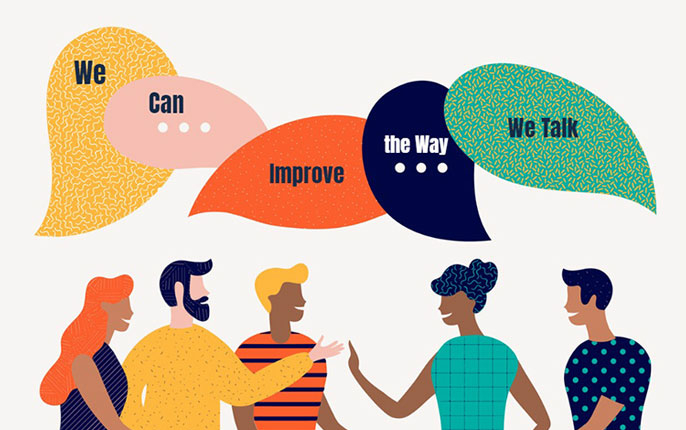RULE OF LAW AND DEMOCRACY
03 NOVEMBER 2021
What Do We Imply When We Talk About Democracy?

Author: Petranka Kostadinova, Masters’ student, Defense studies, University of Ljubljana
The work arrived within the Open call for texts: Send us your essays & get published!
Conversations about current political topics become increasingly polarized, discussions on Internet platforms are fueled by insults, accusations, belittling, lies, deceptions and propaganda. But what is significant for democracy, which elements do we recognize as being challenged in democracy? Is it still the system we want to use to govern in our society? It seems there are two completely differing views of the world – left and right – who fail to come to an agreement and find common ground on most anything. But what do we imply when we talk about democracy? There are different definitions and theories about democracy, and different interpretations and implementations that prioritize personal interests of a particular political elite.
So, if there is no agreement in society about what is democracy, how can it be maintained? The rule of the people is valid for as long as citizens can participate in free elections, and their choice can change the world for the better. But how can that work if we do not agree on what the better world looks like and what we want and expect of that democratic world? History has demonstrated that even democratic elections can result in electing a dictator with extreme views; however, contemporary democracy is marked by much more than the opinion of the majority.
Democracy can also be understood by understanding what democracy is not. Democracy is not tyranny, it is not dictatorship, it is not the autocracy of a sole dictator, a handful of people, elites – but only when it is responsible for the public good and when citizens are able to control said elites.
Despite the firm belief in democracy as an idea, the trust has been lost in its functioning and in the functioning of the representative body as the one enforcing the will of the people. Combined with the global nature of democratic practices and ideas, and all globalization processes as such, it further calls democracy into question. Nowadays, the term ‘crisis’ is often used for that entire sum together – the crisis of democracy as a practice and the crisis of democracy as a theory. Undeniably so, if we are to use the term ‘crises for the current state-of-affairs of democracy, we first need to pinpoint what is wrong and to demonstrate this crisis.
The current concept of representative democracy is unsatisfactory. This is reflected at national level, and it thus unequivocally reverberates globally. We can note an increase of democracies that meet minimum standards, but we simultaneously note and witness a decrease of quality in existing ones. The situation is critical, and the current liberal representative democracy is truly unsatisfactory. People feel alienated and the dissatisfaction continues to increase. There is a need for an alternative that would loosen democracy’s veins clogged with ideas about the finality of the current state and the acceptance of a virtual, alternative-less state.
The situation in the democracy, where alternatives are considered utopias and constantly subordinated to existing ideologies, is unsustainable for the democracy itself and for the people. Democracy is not a one-way street; democracy needs content.
Alternatives should be sought both within and outside the system. There is a need to research roads, starting from deliberative toward participative concepts, and to transform the existing system. Ways should be found to retrieve people’s trust in democracy and its functioning. People should have a sense of control over democracy in order to trust it. We should increase the chances to influence the system, which does not solely entail additional elections. We need new mechanisms that would involve youth in the political world, in society, in accordance with progress, intensity of globalization, technology development, and to hear their ideas, which I am convinced are justified and worthy of implementation. Still, (non)democracy is happening here and now. We need mechanisms that would encourage youth to move from passive to active citizens that would take actual interest in the taxes they are paying.
With this, we can increase control and, consequently, regain trust. People’s revolt is understandable; it is merely an outcome of the dissatisfaction with the ruling party. However, the strength and power of decision-making is in the hands of the people, and that should be utilized accordingly. It is necessary to research the power of movements and protests and to use them to start the much-needed transformation.
It is also necessary to identify opportunities to utilize new technologies and the channels they provide. Aware of their shortcomings and dangers deriving therefrom, they are the best alternative in the present media space. Given that there is a significant decrease of space for criticism and an increase of comprehensive populism and adherence to the hegemonic liberal concept.


 Information technology
Information technology
 Environment
Environment











Leave a Reply
Want to join the discussion?Feel free to contribute!